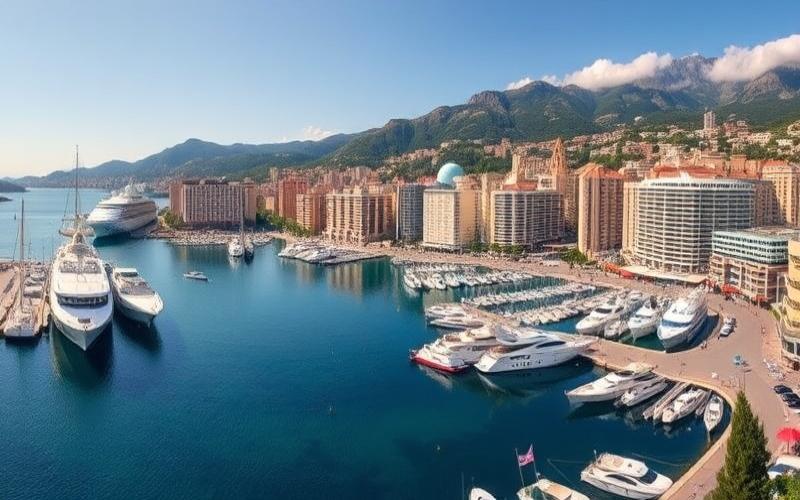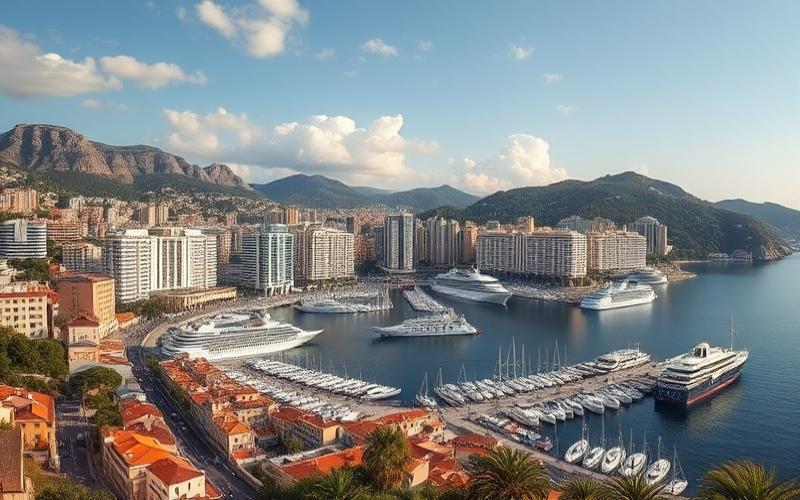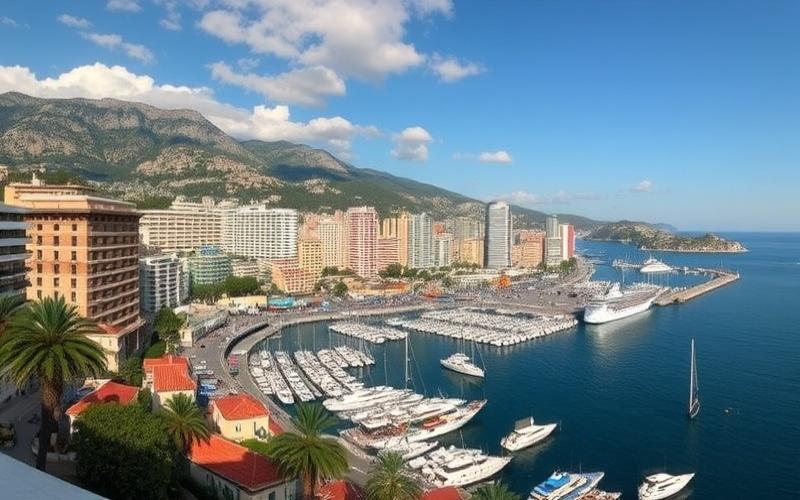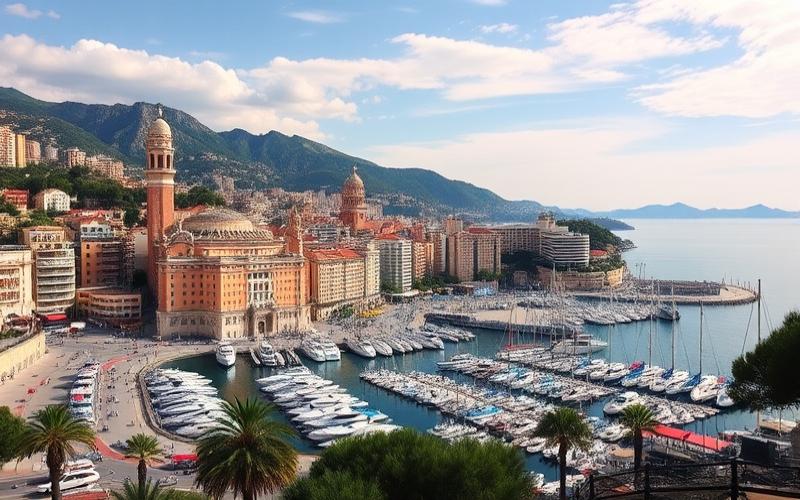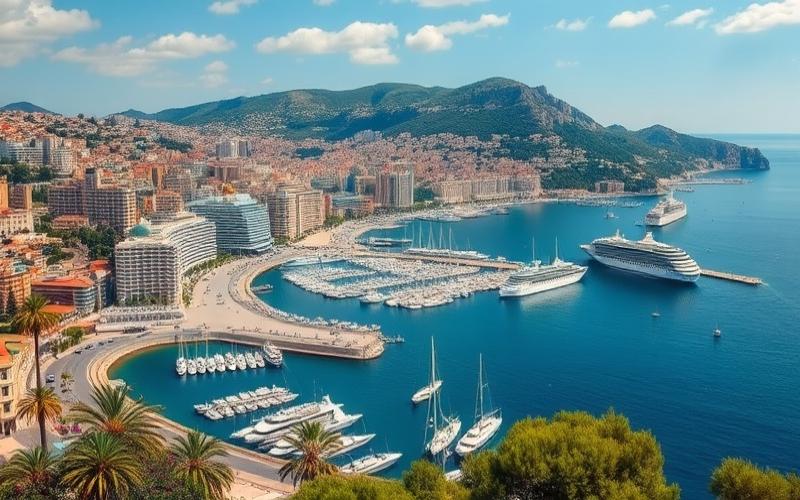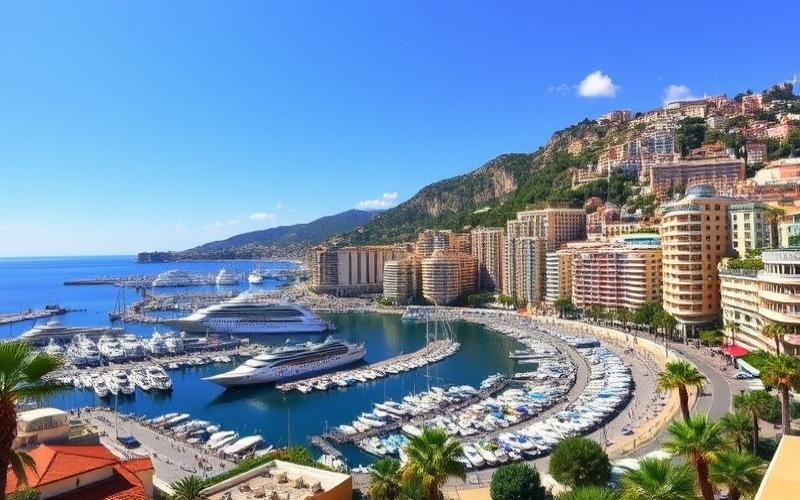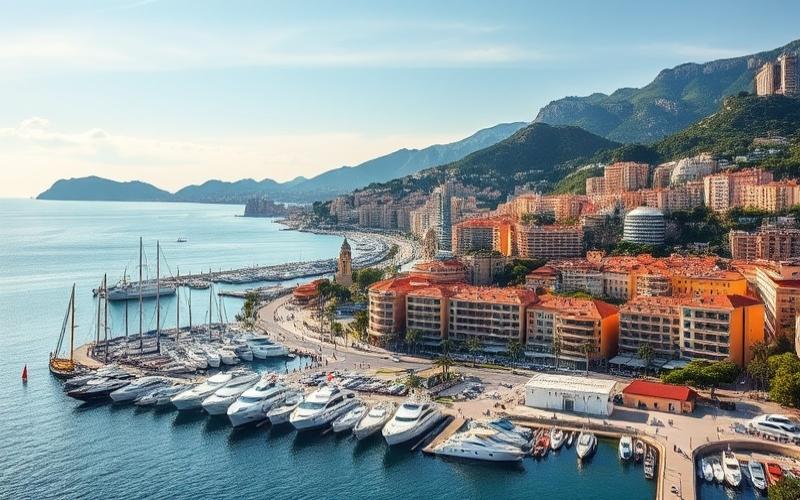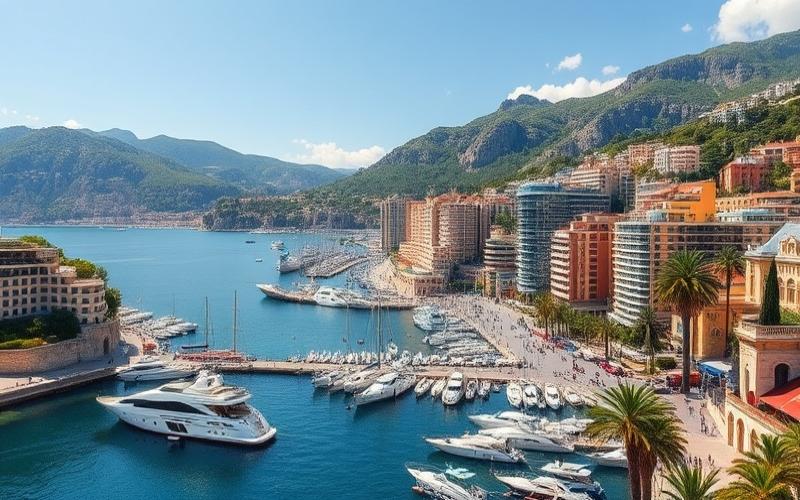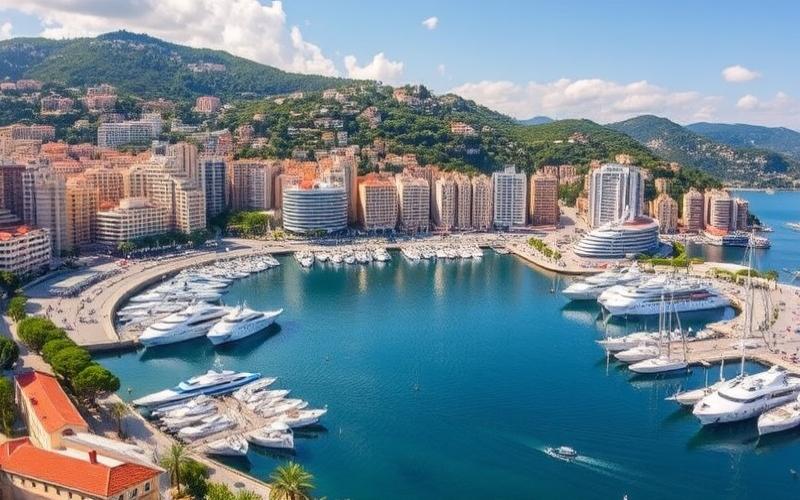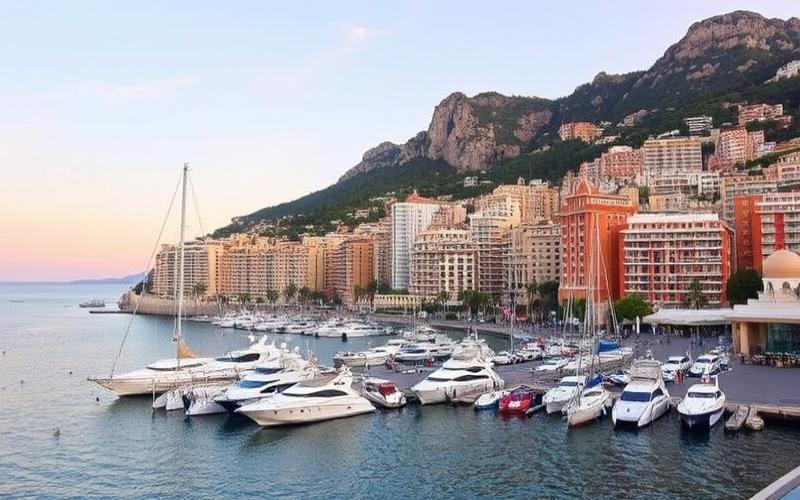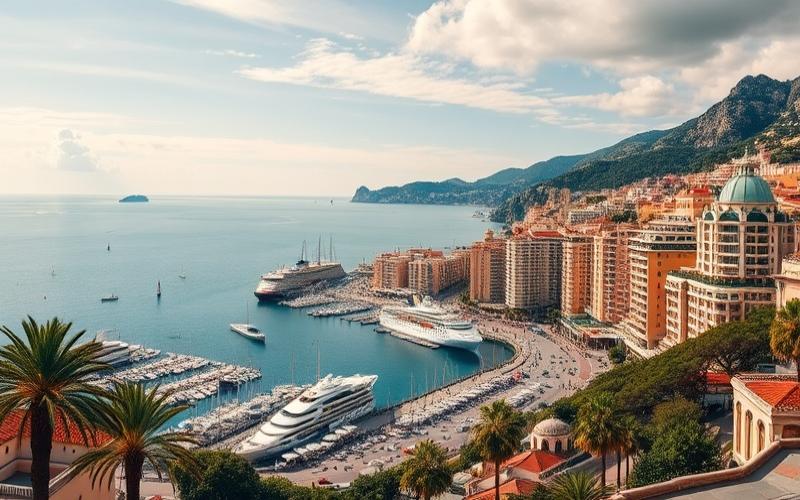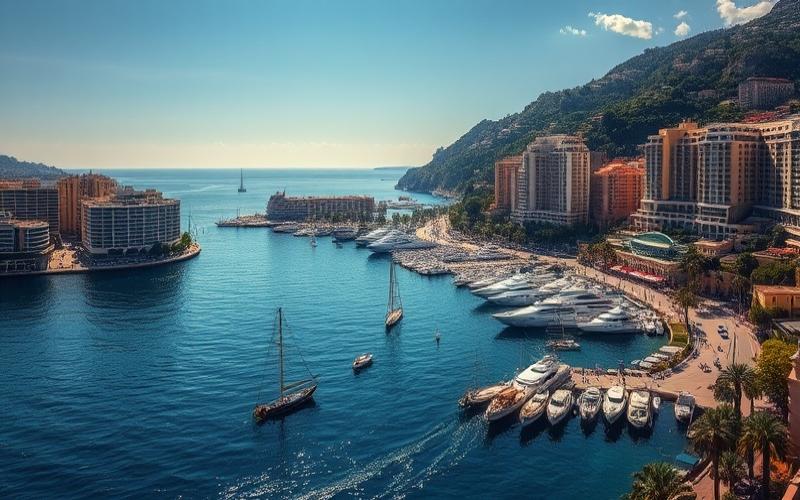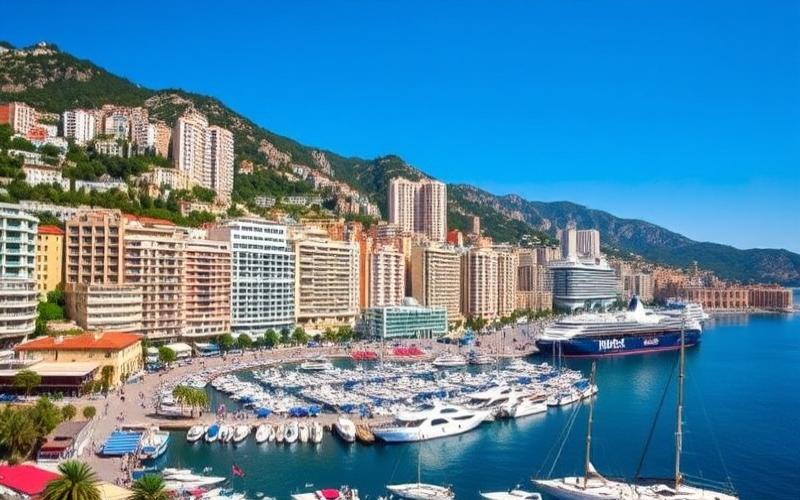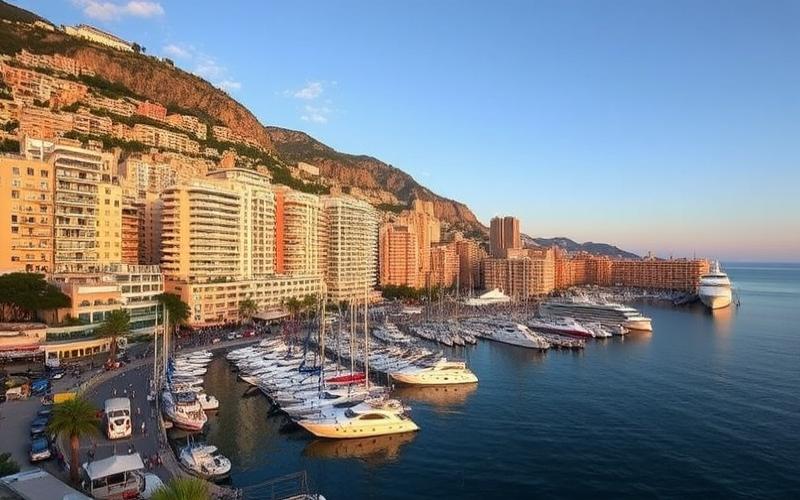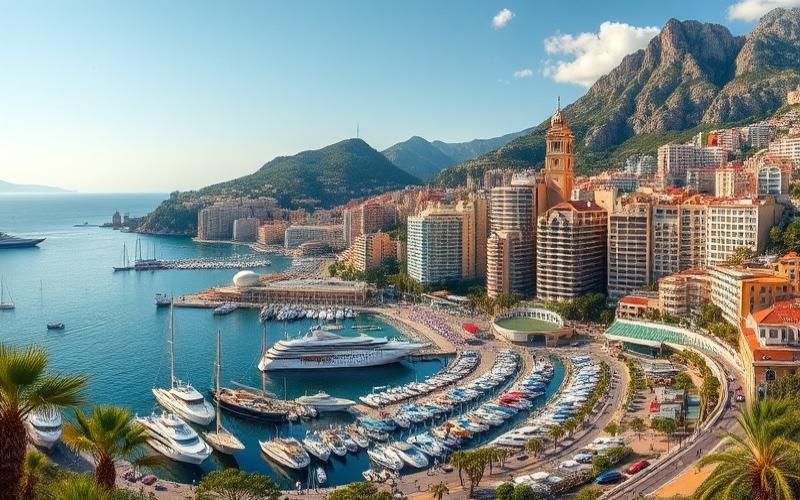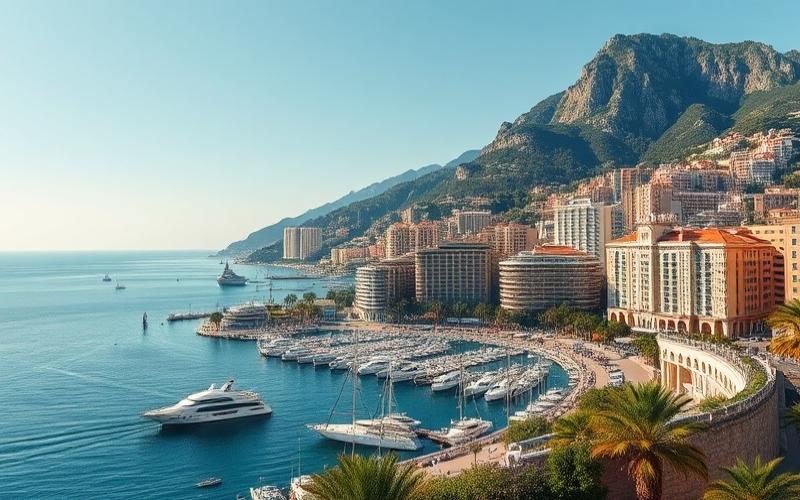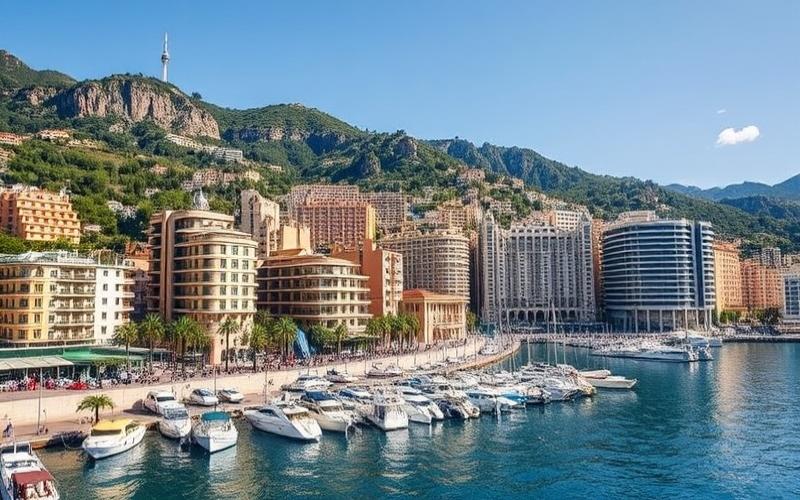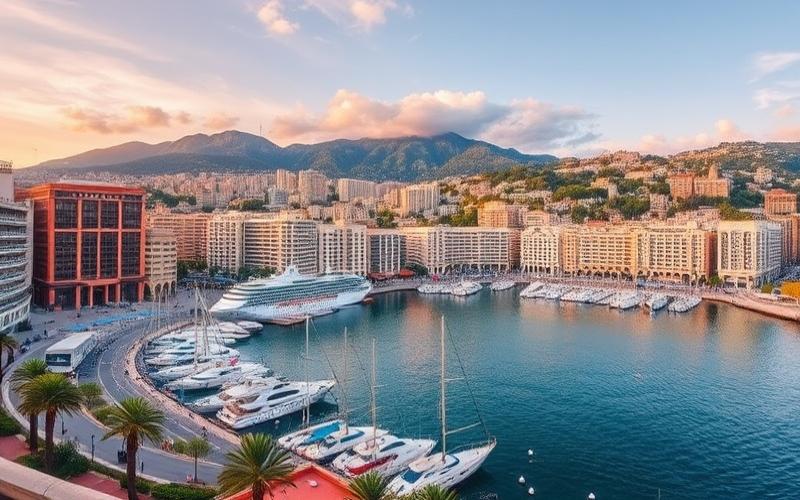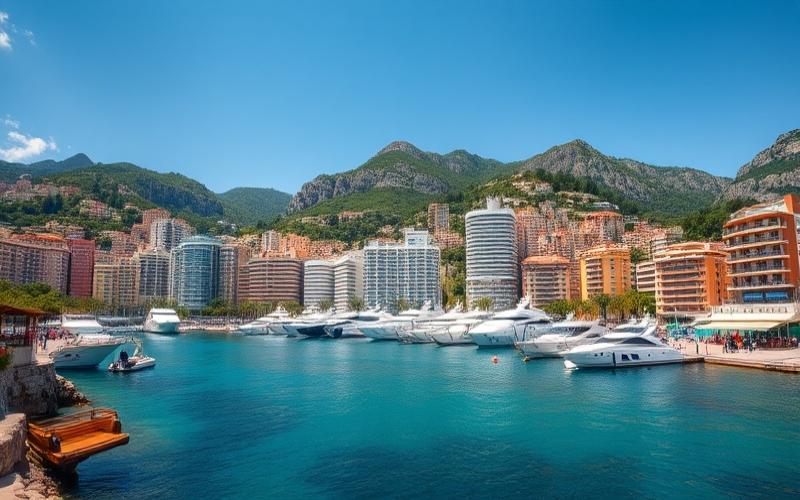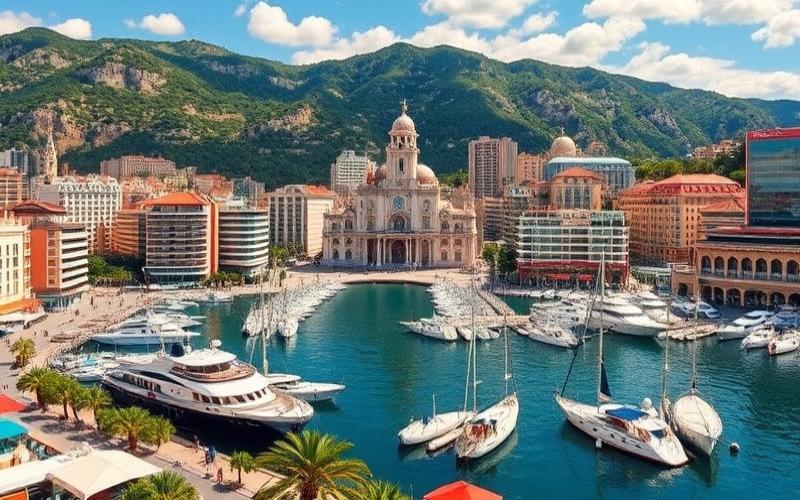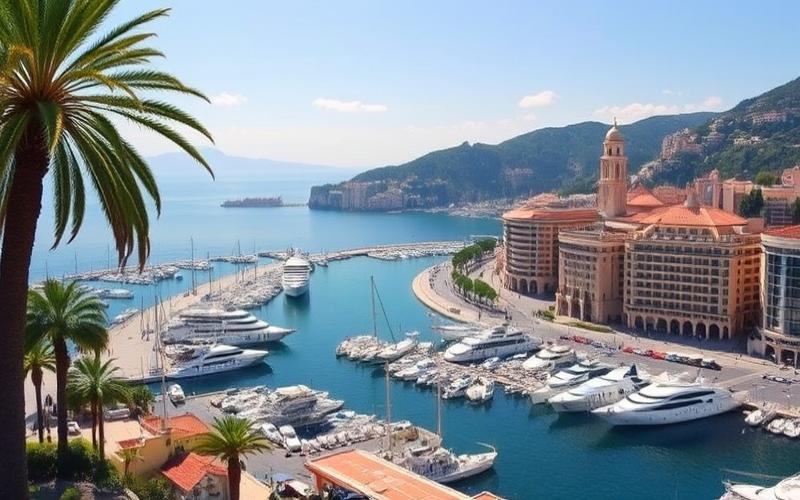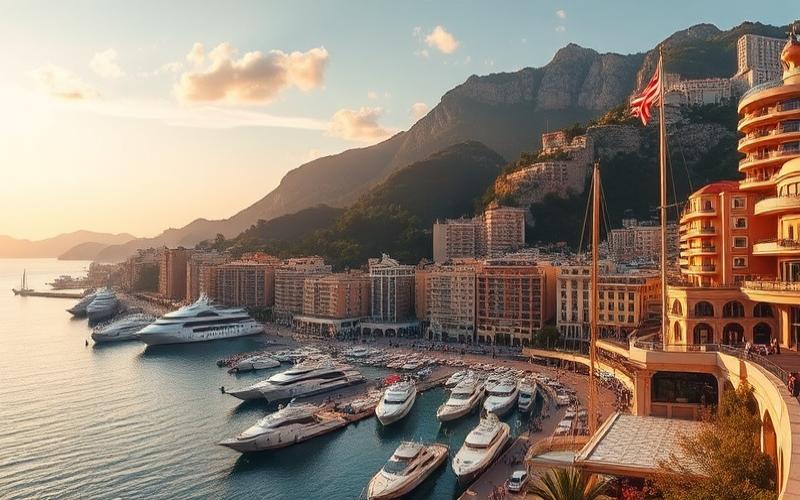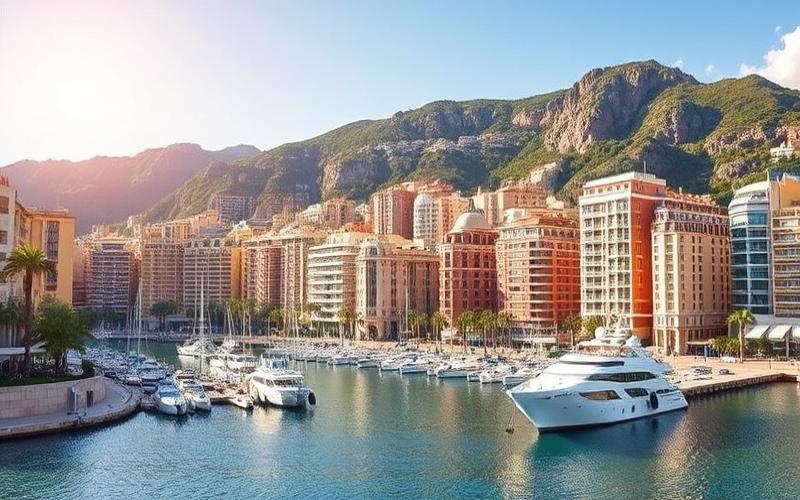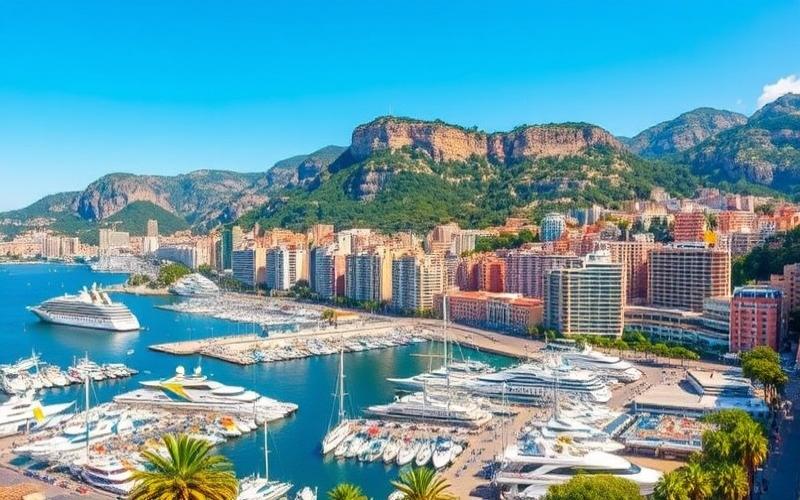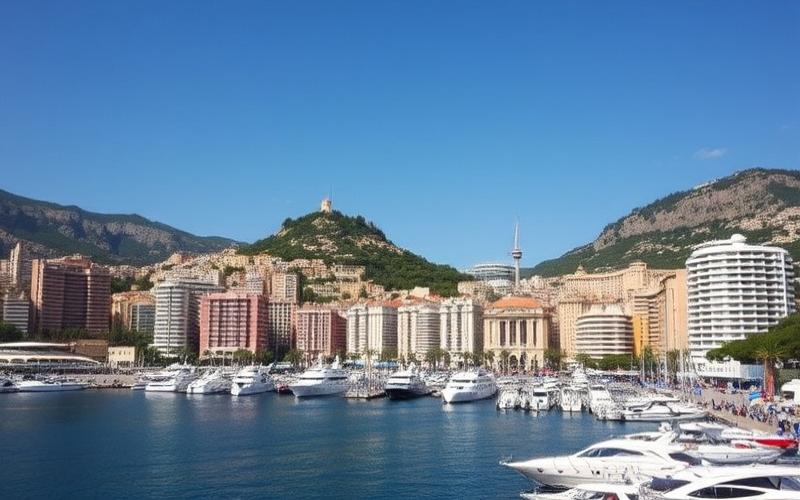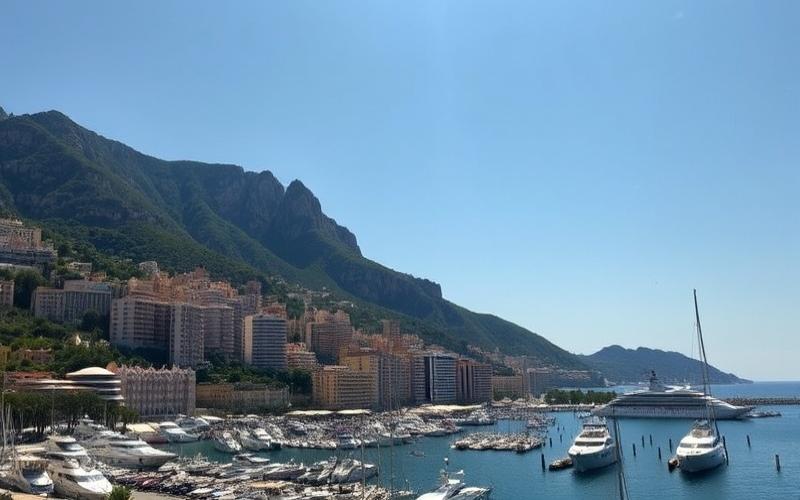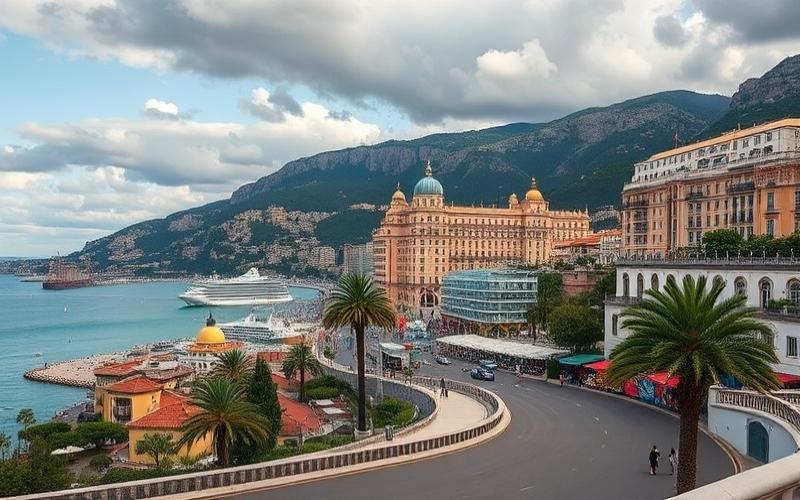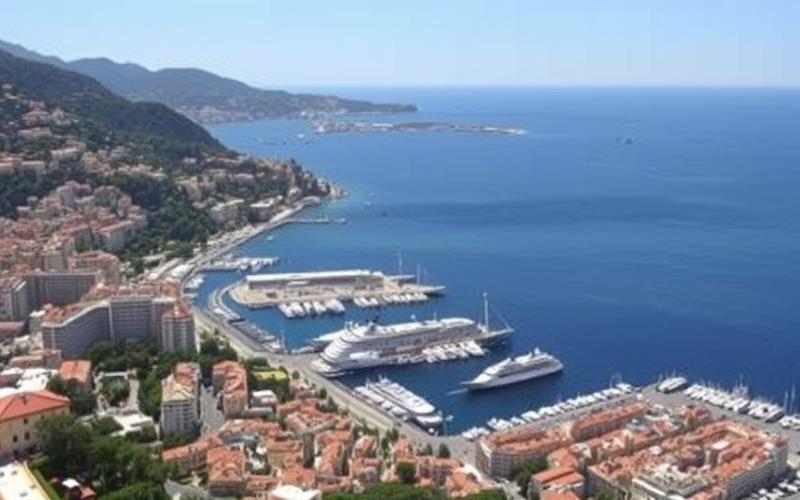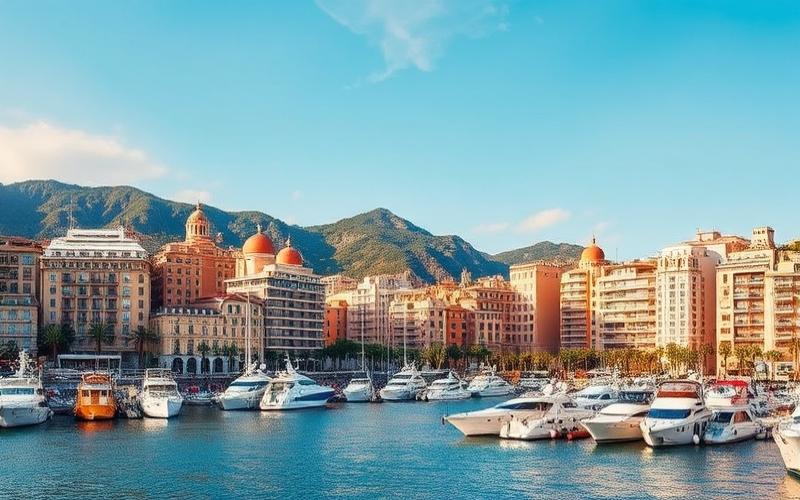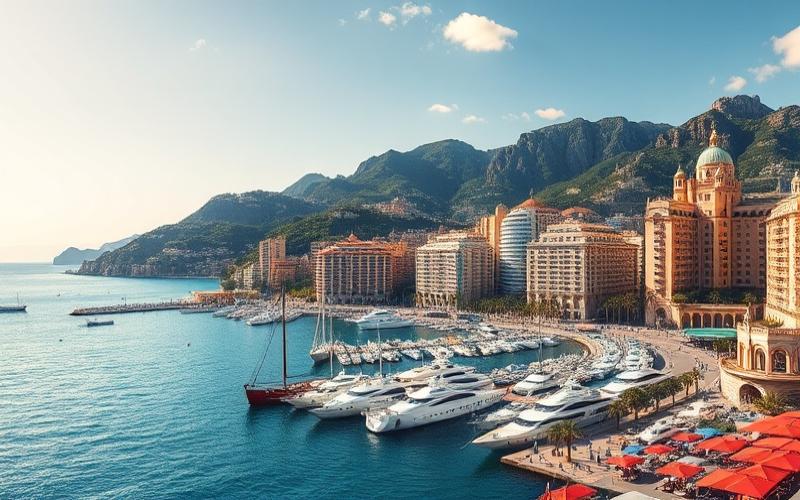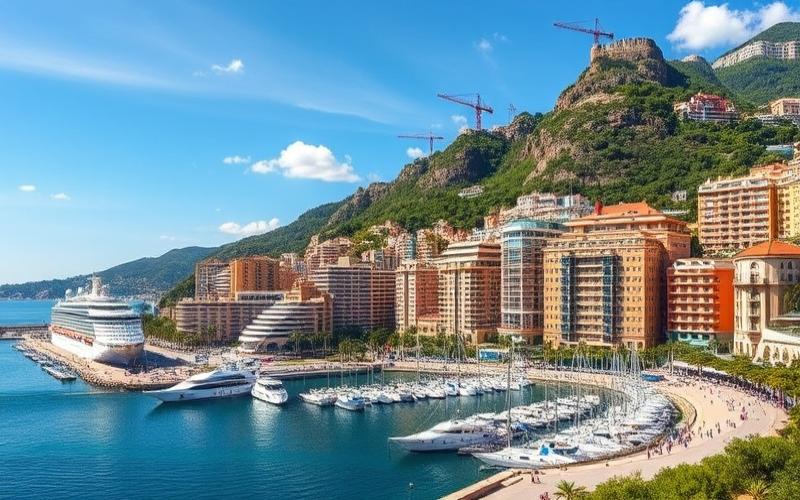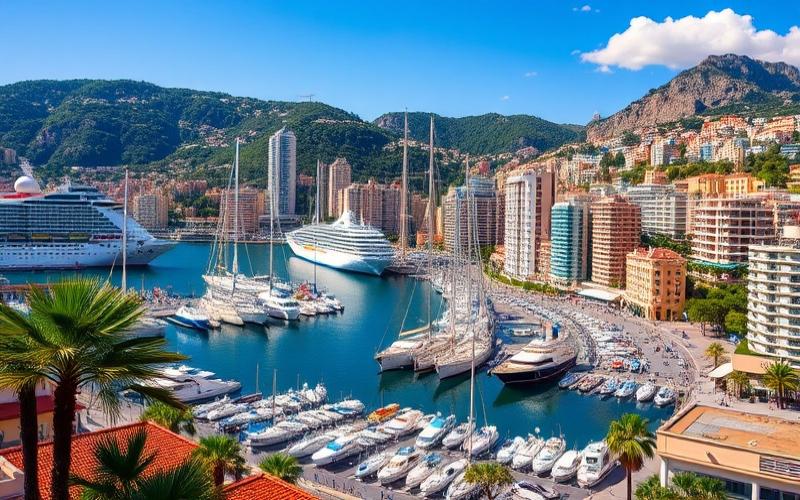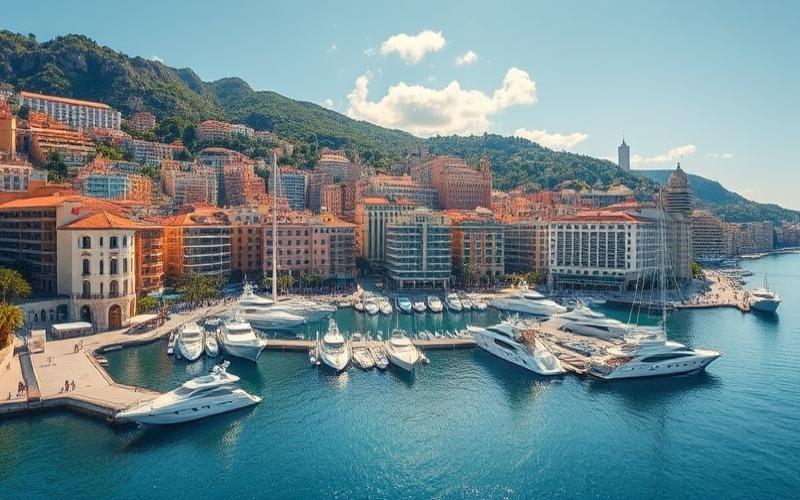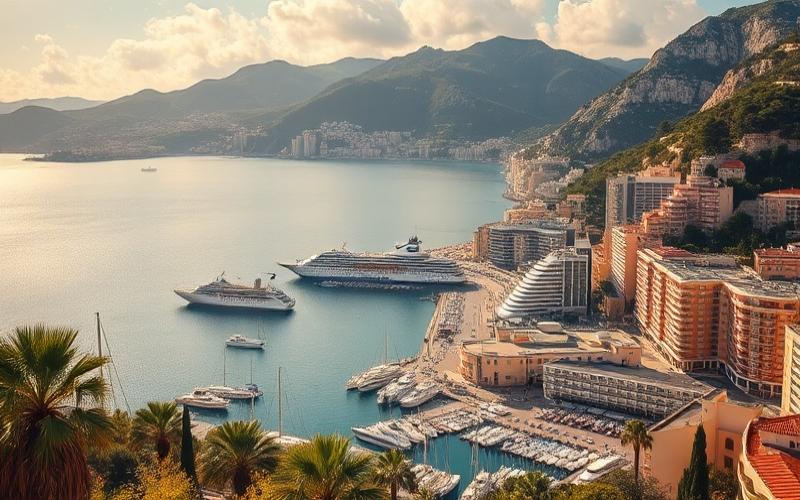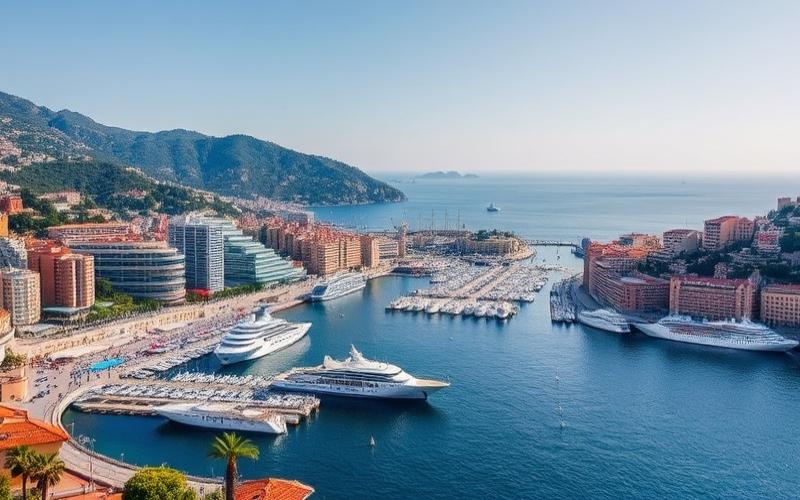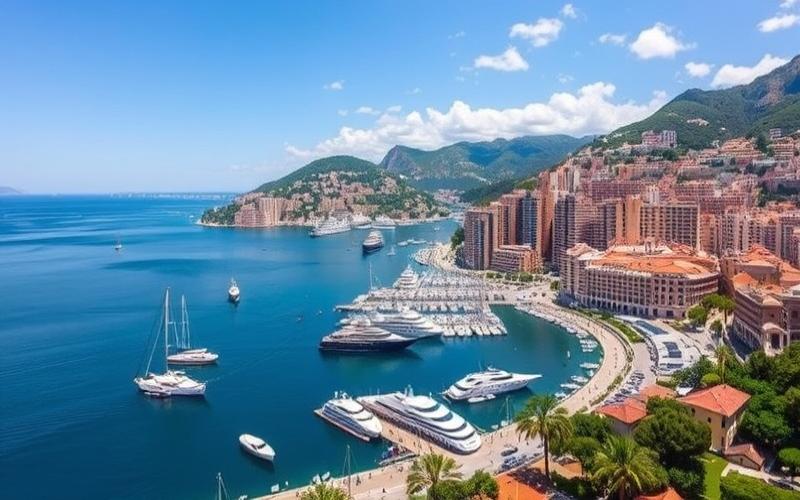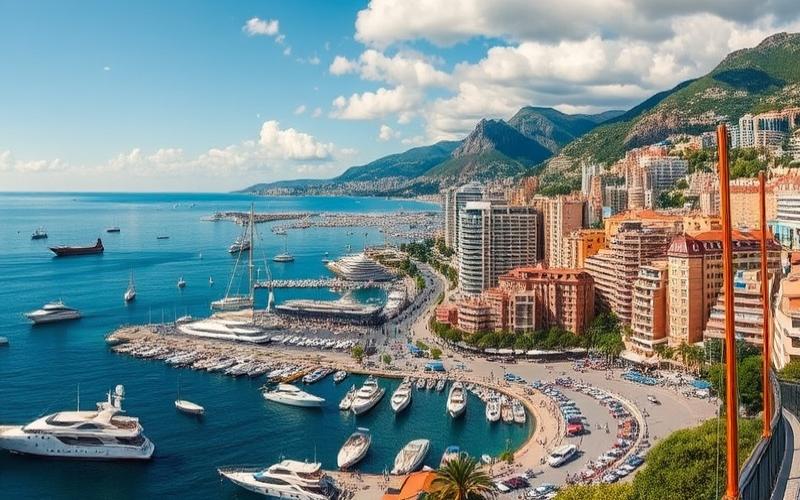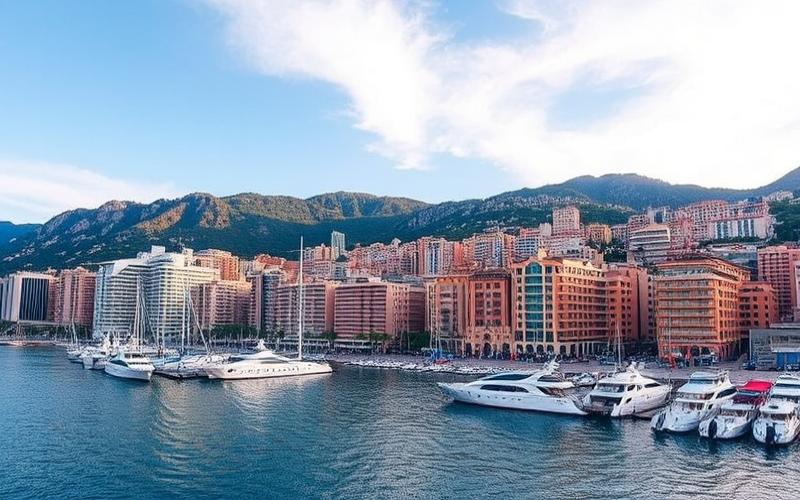
 Published on and written by Cyril Jarnias
Published on and written by Cyril Jarnias
Real Estate Succession in Monaco
Monaco, a prestigious Mediterranean enclave, requires particular attention due to its unique legal and tax specificities. For anyone considering transferring real estate assets in this exceptional setting, understanding the nuances of the complete procedure is essential.
Key Steps in Real Estate Succession
From designating heirs to tax implications, including notarial formalities, each step carries crucial importance to avoid potential pitfalls.
Good to Know:
The Monegasque legal framework is both elaborate and rigorous, specifically adapted to the Principality’s exclusivity and international character.
Tradition and Modernity
This article will guide you through the complexities of this universe, where tradition and modernity converge to create a legal framework that is both elaborate and rigorous.
Specifics of Real Estate Succession in Monaco
The Monegasque legal framework for real estate succession is marked by notable specificities. Monaco applies Law No. 1.448 of June 28, 2017 concerning private international law, which establishes a unity rule: the applicable succession law is that of the deceased’s domicile at the time of death, defined as the principal establishment, aligning the Monegasque system with European standards while avoiding conflicts of law. The Monegasque Civil Code also provides strong protection for certain heirs (particularly children) through the hereditary reserve (Articles 780 and following), guaranteeing them a minimum share in the succession even if the deceased had written a contrary will.
The real estate market in Monaco is distinguished by its very limited size and extreme exclusivity. The limited land space makes each property rare and particularly expensive, increasing the patrimonial importance of real estate successions in the Principality. The high value of properties can thus generate significant issues during their transfer.
Tax Regime for Real Estate Successions in Monaco
From a tax perspective, Monaco offers an attractive regime:
- Direct line (parents-children) or between spouses: 0%
- Between siblings: 8%
- Between uncles/aunts/nephews/nieces: 10%
- Between other collateral relatives or non-relatives: up to 16%
Real estate successions are therefore largely exempt or lightly taxed for close family transfers. Properties located on Monegasque territory are subject exclusively to local inheritance taxes, regardless of the deceased’s or heirs’ place of residence. However, it should be noted that for certain movable assets held by a French national deceased in Monaco, there is a strict condition: having resided in Monaco for at least five years before death to avoid potential application of French tax law on these assets.
Differences Between Residents and Non-Residents
| Status | Applicable Law | Taxation on Real Estate Located in Monaco |
| Monegasque Resident | Unified Monegasque law (since 2017) | Local inheritance taxes only |
| Non-Resident/Foreign Deceased | Determining effective domicile; potential international convention | Local taxes if property located in Monaco |
Steps of a Real Estate Succession in Monaco
- Mandatory appointment of a notary.
- Establishment of a notarial certificate confirming heir status.
- Official valuation of assets comprising the estate.
- Distribution certificates issued to legitimate heirs.
- Distribution compliant with legal shares protected by the hereditary reserve.
Summary List of Steps
- Official opening after death
- Notarial designation
- Legal confirmation of heir status
- Precise inventory and asset valuation
- Possible payment of due tax duties
- Effective transfer according to legal rules
Recent examples illustrate several challenges:
“With the increasing arrival of foreign investors holding multiple nationalities or having lived in different countries before settling in the Principality, succession situations sometimes become complex regarding the combined—or even competing—application of several national legal regimes. Some families have fully benefited from the zero rate on real estate transferred between direct relatives despite substantial assets; conversely, some disputes arise when proof of actual domicile is not established with certainty at the time of death.”
This context creates as many major tax opportunities as technical risks, particularly for those with significant international stakes involving properties located in the Principality.
Good to Know:
Real estate succession in Monaco is characterized by a specific legal framework governed by the Monegasque Civil Code, with distinct laws influencing property transfer. The real estate market, exclusive and limited by its area, poses unique challenges during successions. Tax-wise, inheritance taxes in Monaco are generally favorable, especially for direct line heirs, but exceptions apply depending on the degree of kinship. Successions differ for residents and non-residents, with the latter often facing more complex procedures. The succession process in Monaco requires the appointment of a notary, property valuation, and distribution among heirs according to the law. A recent case involves increased complexity for a non-resident navigating multiple legal orders, illustrating the particular challenges of this market.
How to Inherit Real Estate in Monaco
The legal conditions for inheriting real estate in Monaco are primarily based on Monegasque law, which applies exclusively to properties located within the Principality’s territory, regardless of the deceased’s or heirs’ residence or nationality.
Applicable Legislation
Real estate properties located in Monaco are subject solely to Monegasque inheritance taxes. This means international successions must respect bilateral conventions between Monaco and other states (notably France), according to which real property is taxed only in the state where it is located.
Furthermore, in matters of succession, Monaco protects certain direct heirs through a hereditary reserve ensuring they cannot be completely disinherited. This protection mainly concerns children and is provided for in the Monegasque Civil Code (Articles 780 and following).
Rights of Direct Heirs
Surviving spouses and direct descendants benefit from total exemption from inheritance tax on real estate in Monaco. For other categories: civil union partners (4%), siblings (8%), uncles/aunts/nieces/nephews (10%), and unrelated beneficiaries up to 16%.
Administrative Procedures Upon Opening a Succession
The procedure begins with the mandatory involvement of a local notary who establishes a notarial certificate confirming heir status. This document then allows obtaining the necessary distribution certificates to legally justify the right to inherit.
Main steps include:
| Step | Description |
| Death Declaration | To be made with competent authorities in Monaco |
| Official Opening | Succession opened at deceased’s domicile or according to territorial jurisdiction |
| Notarial Involvement | Appointment of a specialized Monegasque notary to establish notarial certificate |
| File Preparation | Provision of supporting documents: death certificate, property title, possible will, etc. |
| Certificate Obtainment | Distribution certificates issued by notary to heirs |
Generally Required Documents:
- Death certificate
- Property title(s)
- Documents proving family relationship with deceased
- Will if existing
- Marriage certificate or PACS if applicable
These documents are essential to officially initiate the succession transfer.
Specific Will Drafting
It is strongly recommended that anyone wishing to organize their real estate succession in Monaco draft a will compliant with local law to avoid any subsequent disputes. Indeed, only a will respecting Monegasque legal rules will be fully valid before its courts.
Essential Role of Local Specialized Notary
Using a notary based in Monaco greatly facilitates all these procedures thanks to their in-depth knowledge of local legal and tax specificities as well as their direct access to necessary registers. They also play a central role in tax optimization during asset transfer.
Good to Know:
To inherit real estate in Monaco, it is crucial to know the Principality’s specific succession laws. Direct heirs, such as children, generally benefit from priority, but rules can be more complex for international successions, where bilateral treaties may apply. Administrative steps include declaring the death with Monaco’s civil registry, producing the death certificate, and the will, ideally drafted according to Monegasque standards to avoid legal complications. A local notary is indispensable for authenticating documents and advising on tax matters, as in Monaco, direct line successions are not subject to tax, unlike collateral successions which may be taxed at a higher rate. Particular attention should be paid to drafting a will compliant with Monegasque jurisdiction to ensure the deceased’s wishes are respected, and it is strongly recommended to consult a specialized notary to effectively navigate these specific procedures.
Inheritance Taxes for Foreigners in Monaco
Monegasque inheritance laws are defined by Articles 602 to 760 of the Civil Code. They are characterized by differentiated application depending on the nature of assets:
- Real estate located in Monaco: systematically subject to Monegasque law, even if owned by a foreigner.
- Movable assets (bank accounts, securities, personal items): governed by the deceased’s national law.
Since the recent reform, it is now possible for any person (including resident foreigners) to choose in their will that their succession be governed by the law of their nationality rather than that of Monaco. This option is particularly appreciated by families from common law countries wishing to avoid strict application of reserved heir rights imposed on descendants in the Monegasque civil law system.
| Heir Type | Tax Rate on Succession Share |
|---|---|
| Direct Descendants | 0% |
| Siblings | 8% |
| Uncles/Aunts/Nephews/Nieces | 10% |
| Distant Relatives | 13% |
| Unrelated Persons | 16% |
Note:
- These rates apply without distinction between foreign and local heirs for properties located in Monaco.
- In case of inheritance shared between foreign and Monegasque co-heirs, a mechanism allows local heirs to deduct a value equivalent to assets located abroad from which they would be excluded under foreign local law.
Administrative and Legal Procedures for Foreigners:
- Filing death certificate with the Court of First Instance.
- Possible establishment of a notarial act if the deceased left a will or if the succession composition is complex.
- Inventory of concerned real and movable properties.
- Payment of due taxes before effective asset transfer.
Concrete Examples of Tax Adjustments:
If the beneficiary can prove that equivalent tax has been paid in another country on all or part of received assets, some bilateral conventions sometimes allow avoiding double taxation or provide for a tax credit under specific conditions.
International Conventions That May Influence Successions:
Monaco has not signed many bilateral agreements specifically relating to inheritance taxes but applies certain tax conventions that can limit double taxation in specific cases depending on the concerned country.
European nationals should note that EU Regulation No. 650/2012 does not directly apply to Monaco but may have indirect impact during cross-border processing with Member States applying this regulation.
To ensure succession optimization, it is highly recommended that foreigners with significant assets in the Principality—particularly real estate—consult specialized counsel to judiciously articulate their will with their international personal situation.
Good to Know:
In Monaco, inheritance legislation for foreigners differs from that applied to local residents, with notable specificities. Inheritance taxes vary according to the relationship with the deceased, with higher rates for distant or unrelated foreign heirs. These rates can be mitigated under certain conditions or international conventions, notably through bilateral treaties aimed at avoiding double taxation, such as with France. Procedures for settling a succession include appointing a notary and filing a succession declaration with the Monegasque tax authorities, requiring documents proving kinship and the deceased’s residence. An important example to consider: foreign spouses may benefit from exemptions in certain contexts, particularly when specific conventions apply.
The Role of the Notary in an International Succession in Monaco
Notaries in Monaco must possess specific skills in private international law, particularly the ability to recognize, interpret, and apply foreign laws in the context of an international succession. This expertise is indispensable as the Principality attracts an international clientele whose assets are often composed of properties located in multiple countries.
Required Competencies:
- Mastery of the Monegasque private international law code, which provides for application of a single law to the entire succession (that of the deceased’s last domicile) or, upon express choice (professio juris), that of the testator’s nationality.
- Ability to verify content and effects of foreign laws that may apply to various asset components.
- In-depth knowledge of foreign succession mechanisms (e.g., limited or non-existent recognition of certain acts such as spousal gifts or pacts on future succession).
Inter-Jurisdictional Facilitation:
- Notaries regularly collaborate with legal and tax correspondents located in various countries to obtain exact interpretation of applicable legislations.
- They ensure coordination between Monegasque and foreign administrations to guarantee each step respects local and international legal requirements.
Concrete Example:
| Situation | Notary’s Actions |
|---|---|
| Real Estate in France | Ensures act respects both French and Monegasque law; solicits French notary for local registration. |
| Bank Accounts in Switzerland | Requests succession certificate compliant with Swiss law; verifies if European Certificate of Succession is necessary. |
| Heirs Residing in United Kingdom | Informs about British tax implications; adapts distribution according to applicable tax regime. |
Specific Challenges:
- Simultaneous management of different procedures (tax declaration in France, civil distribution in Monaco).
- Anticipation or resolution of potential conflicts of law concerning hereditary reserve or public policy.
- Consideration that certain measures recognized in Monaco do not always produce their effects in all concerned states.
International Tax Issues:
- The Monegasque code does not directly regulate tax aspects: thus all tax consequences specific to involved jurisdictions must be anticipated (different transfer taxes according to each state).
- Some tools used to optimize tax transmission may be ineffective outside Monaco.
Protection of Heirs Residing Abroad:
The notary’s central role also consists of legally and materially securing individual rights of non-resident heirs, both through precise information about their respective rights and ensuring their equitable representation during succession settlement.
In Summary:
- Sharp technical competence, strong international network, and constant adaptation are essential to enable the Monegasque notary to effectively accompany international clients while ensuring regulatory compliance, legal security, and cross-border asset optimization.
Good to Know:
Notaries in Monaco, within the framework of international successions, possess specific skills such as recognizing and interpreting foreign laws, essential for managing assets located in multiple countries. They play a key role in facilitating communication between different jurisdictions and ensuring all legal requirements are respected, both in Monaco and abroad. For example, a Monegasque notary might collaborate with French or Italian counterparts to resolve complex international tax questions while coordinating the sale of real estate in France and Monegasque assets. This professional also protects the interests of heirs residing abroad, ensuring legal compliance while optimizing the process to avoid potential complications such as double taxation.
Disclaimer: The information provided on this website is for informational purposes only and does not constitute financial, legal, or professional advice. We encourage you to consult qualified experts before making any investment, real estate, or expatriation decisions. Although we strive to maintain up-to-date and accurate information, we do not guarantee the completeness, accuracy, or timeliness of the proposed content. As investment and expatriation involve risks, we disclaim any liability for potential losses or damages arising from the use of this site. Your use of this site confirms your acceptance of these terms and your understanding of the associated risks.

